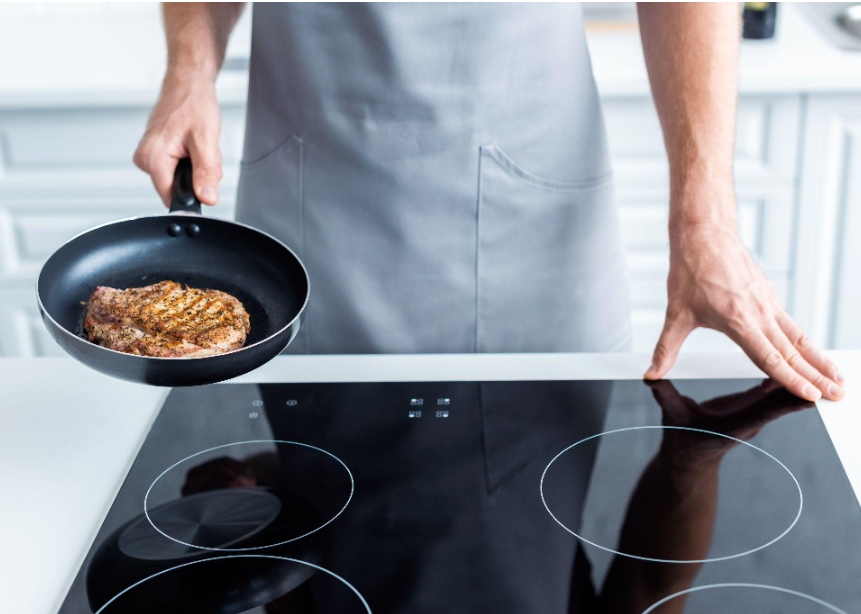
If you’re in the market for a new cooktop, you might be wondering whether to go with a traditional gas stove or an induction cooktop. Both options have their own advantages and disadvantages, and the choice ultimately depends on your cooking needs and preferences. In this article, we’ll take a closer look at the key differences between induction cooktops and gas stoves to help you make an informed decision.
Induction Cooktop vs. Gas: Which One Should You Choose?
Gas Stoves: The Classic Choice
Gas stoves have been a popular choice for home cooking for decades, and for good reason. They offer a direct, responsive heat source that allows for precise temperature control. With a gas stove, you can quickly adjust the flame to your desired intensity, making it easy to sear, simmer, or boil your food. Additionally, gas stoves tend to be more affordable than induction cooktops, and they can still function during a power outage.
However, gas stoves also have some drawbacks. They can be more difficult to clean, as the grates and burners can collect food particles and grease over time. Gas stoves also produce open flames, which can be a safety concern, especially if you have young children in the home. Additionally, gas stoves require a connection to a natural gas or propane line, which may not be available in all homes.
Induction Cooktops: The Future of Cooking
Induction cooktops, on the other hand, are a more modern and efficient option. These cooktops use electromagnetic technology to directly heat the cookware rather than the cooktop surface. This means that the cookware itself heats up while the cooktop surface remains relatively cool to the touch. This not only makes induction cooktops more energy-efficient but also safer, as there are no open flames or hot surfaces.
One of the key advantages of induction cooktops is their precision and responsiveness. Like gas stoves, induction cooktops allow for quick temperature adjustments, making them great for tasks like simmering sauces or boiling water. However, induction cooktops take it a step further by providing even more precise temperature control, allowing you to achieve the perfect temperature for delicate tasks like melting chocolate or keeping food at a precise serving temperature.
Advantages of Induction Cooktops
One of the many advantages of induction cookers is their comfort in tidying up. It’s for the very reason that the surface does not become burnt like a gas stove, spills and messes are much easier to wipe up. This can save you time and effort in the long run, especially if you do a lot of cooking.
Induction cooktops are also more energy-efficient than gas stoves, as they only heat the cookware directly and not the surrounding area. This can lead to significant energy savings, which can be especially beneficial if you’re looking to lower your electricity bills or reduce your carbon footprint.
Finally, induction cooktops offer a sleek, modern look that can complement a variety of kitchen styles. With their smooth, glass-ceramic surfaces, induction cooktops can create a streamlined and elegant appearance in your kitchen.
Choosing the Right Cooktop for Your Needs
When it comes to choosing between a gas stove and an induction cooktop, there’s no one-size-fits-all answer. The best option for you will depend on your specific cooking needs, budget, and personal preferences.
If you value precise temperature control, energy efficiency, and easy cleanup, an induction cooktop may be the way to go. However, if you prefer the traditional feel of a gas stove or need a reliable heat source during power outages, a gas stove might be the better choice.
Why do gas stoves prevail in most home and commercial kitchens?
Despite the many advantages of induction cooktops, gas stoves still remain the more popular choice in both home and commercial kitchens. This is due to a combination of factors, including familiarity, availability, and cost.
Gas stoves have been around for much longer than induction cooktops, which means that many people are already comfortable and familiar with using them. Additionally, gas stoves are widely available and can be found in most homes and commercial kitchens. This makes them a convenient choice for those who may not have access to or are familiar with induction cooktops.
Furthermore, gas stoves tend to be more affordable than induction cooktops, making them a practical option for those on a tight budget. While induction cooktops may offer long-term energy savings, the initial cost can be a barrier for some.
Final Thoughts
Ultimately, the decision comes down to evaluating your priorities and finding the cooktop that best fits your lifestyle and cooking habits. Regardless of which option you choose, you can be confident that you’ll be able to create delicious meals in your kitchen.
If you’re located in Brisbane, Australia, and are considering a gas cooktop for your home, be sure to consult Plus Gas for recommended gas bottles. Their team of experts can help you navigate the pros and cons of induction cooktops and gas stoves and find the perfect fit for your kitchen.